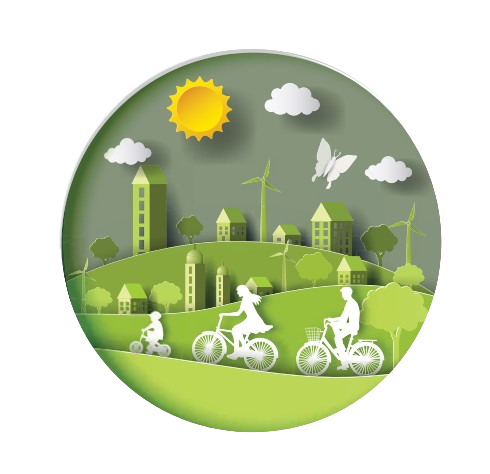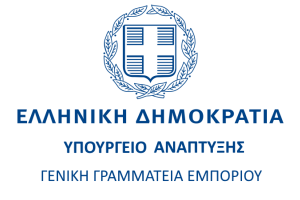GREEN PUBLIC PROCUREMENT

Περιεχόμενα
Α. About GPP
Definition
Green Public Procurement (GPP) defined by the European Commission as: “a process whereby public authorities seek to procure goods, services and works with a reduced environmental impact throughout their life cycle when compared to goods, services and works with the same primary function that would otherwise be procured.”
Objectives – Benefits
Contracting authorities and contracting entities are major buyers of goods, services and works, therefore public procurements are a great way for implementing environmental, social and economic policies. By using their purchasing power to choose environmentally friendly goods, services and works, they contribute locally, regionally and nationally to the achievement of national and international sustainability and environmental policy objectives. These objectives relate to the rational use of resources through sustainable consumption and production of goods and the mitigation of climate change.
Green public procurements (GPPs) promote innovation and provide incentives for the development of green products and services. In addition, taking into account the life cycle cost of a good, service or project, GPPs contribute to cost savings in public sector.
Green public procurements (GPPs) are related to the principles of Circular Economy. According to European Commission, Circular Public Procurements are defined as “a process whereby public authorities seek to procure goods, services and works with a reduced environmental impact throughout their life cycle when compared to goods, services and works with the same primary function that would otherwise be procured”. GPPs play a main role in circular economy, that’s why European Commission uses this in its own supplies and emphasizes on aspects such as durability and ability to repair.
The gradual application of environmental criteria in public procurements will contribute to:
· Reduction of energy and ecological footprint and greenhouse gas emissions, as well as the handle of climate change.
· Reduction of adverse effects on the environment.
· Sustainable and efficient use of natural resources and energy.
· Promotion of innovation and competitiveness.
· Public resources saving, taking into account the life cycle cost.
· Demand for secondary materials by strengthening domestic entrepreneurship, environmental technologies, repair and reuse services, as well as the cyclical pattern of production and consumption instead of the linear one.
· Raise social awareness on environmental issues, reproduce and extend the procurement model in private sector.

Β. Committee for Green Public Procurement
The Committee for Green Public Procurement consists of eleven members, coming from five Ministries (Ministry of Development and Investments, Ministry of Environment and Energy, Ministry of Infrastructure and Transport, Ministry of Interior, Ministry of Health) and from the Hellenic Single Public Procurement Authority.
General Secretariat of Commerce and Consumer Protection (specifically the General Directorate for Public Procurement) of Ministry of Development and Investment is the proceeding public authority for the preparation of the National Action Plan for GPP, according to the EU legislation provisions.
The Commission’s responsibilities are primarily the following:
· The preparation of an action plan for Green Public Procurement and the submission of proposals for national policy making .
· The selection of products, services and works to which environmental criteria are applied.
· Drafting of environmental criteria or adoption of EU green criteria.
· The timely information of the stakeholders, such as the contracting authorities and the economic operators of the country.
· Raising awareness of the contracting authorities and the economic operators of the country about GPP.
· The evaluation, the monitoring of the implementation and the updating of the national policy and the National Action Plan for GPP.
· Suggestions for new legislation and amendments to the existing legislative framework, as well as taking the necessary measures for the implementation of Green Public Procurement laws.
· Suggestions for the assignment of studies, the organization or participation in seminars, programs, lectures or public debates in order to inform, develop and disseminate the principles of Green Public Procurement, the call of special experts and scientists for technical and scientific support and the formation of a working group in each competent Ministry, to assist in the work of the Committee for Green Public Procurement in the individual issues related to their competence.
C. Entities responsible for the implementation of GPP National Action Plan
· The National Action Plan for GPP gradually sets quantitative targets for all contracting authorities and contracting entities to carry out green public procurement in certain categories of goods, services and public works with a time horizon of three years.
· The National Action Plan for GPP also includes a series of awareness-raising, information and training activities for stakeholders (contracting authorities and economic operators). The public bodies responsible for these actions on a case-by-case basis are the Ministry of Development and Investment, the Ministry of Environment and Energy, the Ministry of Infrastructure and Transport, the Ministry of Interior, the Ministry of Health and the Single Independent Public Procurement Authority.
D. EU GPP criteria
In order to implement green public procurement, EU suggests that the following three elements have the biggest potential to promote circular procurement:
1) Focus on provision of services instead of buying products
2) Focus on a product’s design, use phase and end of life.
3) Focus on market dialogue.
In order to promote Green Public Procurement common criteria used by Member States, the establishment of common criteria reduces considerably the administrative burden for economic operators and for public administrations implementing GPP. Common GPP criteria are of a particular benefit to companies operating in more than one Member State as well as SMEs.
The EU GPP criteria are developed to facilitate the inclusion of green requirements in public tender documents. The criteria are regularly updated, in order to take into consideration recent scientific data, new technologies, market development and changes in legislation. Most of the criteria are available in all EU official languages.
A GPP Training Toolkit is available on EU website http://ec.europa.eu/environment/gpp/toolkit_en.htm .
The GPP criteria are based on data from an evidence base, on existing ecolabel criteria and on information collected from stakeholders of industry, civil society and Member States. They were prepared by a group of experts from Member States dealing with GPP. The GPP approach is to propose two types of criteria for each sector covered. The core criteria are those suitable for use by any contracting authority across the Member States and address the key environmental impacts. They are designed to be used with minimum additional verification effort or cost increases. The comprehensive criteria are for those who wish to purchase the best environmental products available on the market. These may require additional verification effort or a slight increase in cost compared to other products with the same functionality. Core criteria are the basis of comprehensive criteria and a public tender is considered as green when it fulfills at least the core criteria.
The green criteria for goods and services are presented on EU website https://ec.europa.eu/environment/gpp/eu_gpp_criteria_en.htm.
Ε. Unified Technical Specifications with green criteria
Provision of Goods
· Services
· Public Works
· Health Sector
F. Life Cycle Cost (LCC)
Definition
Life Cycle Costing (LCC) is an important economic analysis used in the selection of alternatives that impact both pending and future costs. It compares initial investment options and identifies the least cost alternatives for a period of years.
Life-cycle costing shall to the extent relevant cover parts or all of the following costs over the life cycle of a product, service or works:
(a) costs, borne by the contracting authority or other users, such as:
(i) costs relating to acquisition,
(ii) costs of use, such as consumption of energy and other resources,
(iii) maintenance costs,
(iv) end of life costs, such as collection and recycling costs.
(b) costs imputed to environmental externalities linked to the product, service or works during its life cycle, provided their monetary value can be determined and verified; such costs may include the cost of emissions of greenhouse gases and of other pollutant emissions and other climate change mitigation costs.
EU and Life Cycle cost
The European Commission has developed a series of sector specific LCC calculation tools which aim to facilitate the use of LCC amongst public procurers (https://ec.europa.eu/environment/gpp/lcc.htm)
G. Best Practices
Sustainable cleaning services
The Agglomeration of Dinan, located in the Brittany Region (France), published in 2020 a call for tenders for environmentally-friendly and socially-responsible cleaning services. The Agglomeration of Dinan (Dinan Agglomération, in French) comprises of 64 municipalities and around 100,000 inhabitants.
Following the initiation of its Territorial Climate Air Energy Plan, the Agglomeration of Dinan identified indoor air quality as a priority area. Their most recent tenders for cleaning services included a number of environmental and social conditions. Aiming to reduce effluent and improve air quality, they also ensure good working conditions for contracted staff, and tackle social issues such as unemployment.
The resulting contract is worth € 199,902 per year, representing a 20% cost saving compared to previous contracts.
The monitoring exercise also showed an important reduction in air pollutants. The contract clearly proved that public procurement can be an excellent leverage to simultaneously tackle social and environmental priorities.
For more information please visit the link
https://ec.europa.eu/environment/gpp/pdf/news_alert/Issue_110_Case_Study_201_Dinan.pdf
Best Practices
In the European Commission GPP website, best practices are recorded for the following sectors:
Buildings
· Cleaning products and services
· Combined heat & power
· Copying and graphic paper
· Electricity
· Food and catering services
· Furniture
· Gardening products and services
· Indoor lighting
· Implementing gpp policies
· Office building design, construction and management
· Office it equipment
· Office supplies
· Printing products and services
· Street lighting and traffic signals
· Road design, construction and maintenance
· Textiles
· Transport
· Waste management and collection
· Waste water infrastructures
· Water based heaters
· Others
The above mentioned good practices demonstrate how public authorities in Europe have successfully ‘greened’ a public tender and provide some tips for replicating experiences. (https://ec.europa.eu/environment/gpp/case_group_en.htm)
Catalogue of Best Practices in Circular Economy
The Catalogue of Best Practices in Circular Economy identifies good practices carried out in Spain that are transferable and scalable by other stakeholders.
CuRe: Low energy molecular polyester recycling
CuRe has discovered a smarter and scalable technology for creating a fully circular polyester chain. It rejuvenates any type of used polyester by removing the colour and converting it into clear pellets with the same properties as virgin grade polyester. In July 2020, a pilot plant in Emmen (Netherlands) was opened for rapid scale-up.
Environmentally and socially friendly cleaning services – Environment and Resources Authority (Malta)
The ERA’s (Environment and Resources Authority) most recent tender included a number of environmental and social requirements to also ensure good working conditions for staff employed under the contract for the coming three years. The resulting contract (worth approximately €100,000 annually) is executed using only EU Ecolabelled cleaning products – such as, all-purpose cleaners, sanitary cleaners and window cleaners. The mandatory status placed on the Cleaning Products Group within the Maltese NAP for GPP has resulted in numerous tenders being issued with more environmentally friendly cleaning products, which reduces numerous hazardous effects, and has generally enabled broader scale implementation of GPP in Malta.
Download the full case study here.
https://ec.europa.eu/environment/gpp/pdf/news_alert/Issue_108_Case_Study_199_Malta.pdf
Combining procurement models for green and healthy buildings
The tender took place in the Czech Republic in a new treatment facility for respiratory diseases . The winning tender offered a number of sustainable solutions, including reusable (or fully recyclable) components of the existing main construction and interior design solution enabling simple layout adjustments in future. The building design also envisages rainwater collection and its subsequent use for irrigation, with its surplus being absorbed directly in the sanatorium area. Furthermore, the successful tenderer committed to achieve an annual consumption of non-renewable primary energy (NPE) valued at 93 kWh/m2/year, and an average heat transfer coefficient through the building envelope (Uem) of 0.21 W/(m2.K) (with the aim of Uem ≤ 0,25 W/m2K).
For more information please visit the link
https://ec.europa.eu/environment/gpp/pdf/news_alert/Issue_109_Case_Study_200_South_Moravian.pdf
Η. Legislation
European legislation
· Directive 2014/24/EU of the European Parliament and of the Council of 26 February 2014 on public procurement and repealing Directive 2004/18/EC.
· Directive 2014/25/EU of the European Parliament and of the Council of 26 February 2014 on procurement by entities operating in the water, energy, transport and postal services sectors and repealing Directive 2004/17/EC.
· Directive 2009/33/EC of the European Parliament and of the Council of 23 April 2009 on the promotion of clean and energy-efficient road transport vehicles.
· Directive 2010/31/EU of the European Parliament and of the Council of 19 May 2010on the energy performance of buildings.
· Directive 2012/27/EU of the European Parliament and of the Council of 25 October 2012 on energy efficiency, amending Directives 2009/125/EC and 2010/30/EU and repealing Directives 2004/8/EC and 2006/32/EC.
· Directive (EU) 2018/2002 of the European Parliament and of the Council of 11 December 2018 amending Directive 2012/27/EU on energy efficiency.
· Directive (EU) 2018/844 of the European Parliament and of the Council of 30 May 2018 amending Directive 2010/31/EU on the energy performance of buildings and Directive 2012/27/EU on energy efficiency.
The EU website presents the common methodology on minimum energy efficiency standards for public buildings (https://ec.europa.eu/energy/en/topics/energy-efficiency/energy-performance-of-buildings)
· Directive (EU) 2019/904 of the European Parliament and of the Council of 5 june 2019 on the reduction of the impact of certain plastic products on the environment.
· Regulation (EC) No 106/2008 of the European Parliament and of the Council of 15 January 2008 on a Community energy-efficiency labelling programme for office equipment.
· Sustainable Development Goals (SDGs) – 2030 Agenda of United Nations.
· 7th Environment Action Programme to 2020
· Project EUROPE 2030
· EU 2050 long-term strategy and European Green Deal
· EU action plan for the circular economy
National legislation
· Law 4342/2015 – Incorporation into Greek law of the Directive 2012/27/ΕU for energy efficiency.
· Law 4412/2016 – Public Procurement for goods, services and public works (transposition of the Directives 2014/24/EU and 2014/25/EU).
· Law 4710/2020 – Promotion of electromobility and other provisions.
· Law 4736/2020 – Incorporation of the Directive (EU) 2019/904 on the reduction of the impact of certain plastic products on the environment.
· 4th National Action Plan for Energy Efficiency
· National Action Plan for Energy and Climate
· National Strategy for Sustainable Growth
· National Growth Strategy
· National Strategy for Public Procurement
· National Strategy for Circular Economy
